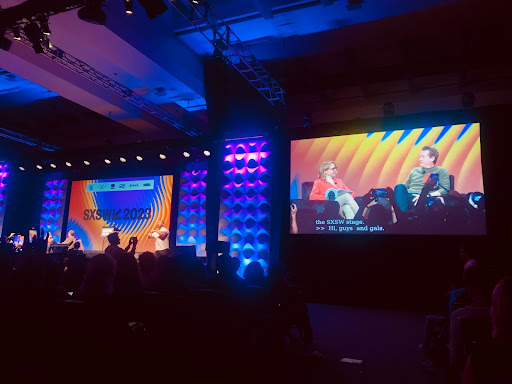SXSW: A shift from ‘break the system’ to fix it
Following a week in Austin Texas for SXSW 2023, Emily Taylor, chief strategy officer of M&C Saatchi AUNZ, reflects on what the key themes she and colleagues Cam Blackley and Andy Thomas observed – and how while the tone is different this year, the message is still the same.
Landing in Austin, Texas for SXSW 2023, we were all excited for a week of inspiration, innovation and culture. Not to mention an opportunity to sample a few tacos, margaritas and cowboy hats. Going off the themes that emerged in 2022, we were expecting sessions to be focused on NFTs, DAOs, crypto and the dark web. But the reality was much different.
Last year, off the back of a global pandemic and years of damage caused by regressive governments and didactic leaders, SXSW gave off a strong sense of ‘break the system’. Defined by technologies and ideologies designed to totally decentralise and overhaul the frameworks that regulate our lives. Those topics were all noticeably missing from this year’s line up. Instead we were treated to a more pragmatic and optimistic approach – evidence of experts, businesses and brands co-operating in unexpected ways, to fix our systems. Less anarchy and more reality. Perhaps less revolutionary at first glance, but just as exhilarating on closer inspection.
Patagonia CEO, Ryan Gellert, spoke passionately about the company’s new business model and commitment to redirecting all future profits to fighting climate change. His progressive views on the need for business to take full accountability for “fixing the mess we created” was enlightening as was his view that we must consider ourselves ‘owners’ rather than consumers, since around 85% of all textiles in America end up in landfill. The company takes a 360 degree view of the total impact of everything they do, from materials to manufacturing, and pays special consideration to the ‘end-of-life’ of a product with repairs, recycling and upcycling designed into the system. “We’ve lost the right to be pessimistic about the future,” he says. “We must take action now.”

Patagonia CEO, Ryan Gellert, on stage

